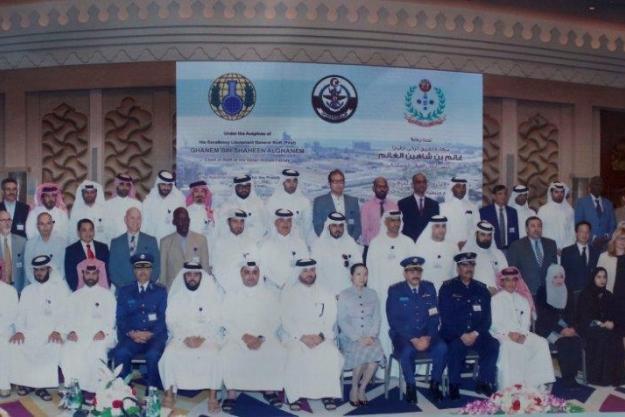
Participants of the forum on Addressing Challenges of Integrated Chemical Management in Petrochemical Industries
THE HAGUE, Netherlands — 17 January 2017 — The forum on “Addressing Challenges of Integrated Chemical Management in Petrochemical Industries”, which took place on 7-8 December in Doha, Qatar, was the first in a series of collaborative meetings organised by the Organisation for the Prohibition of Chemical Weapons (OPCW). The meetings aim to promote peaceful uses of chemistry within the petrochemical industry.
“Integrated chemical management goes hand in hand with effective risk reduction, better decision-making, and the enhancement of risk communication,” the Head of OPCW’s International Cooperation Branch, Mrs Xiaohui Wu, explained during the workshop. “The result of these systems will be a strong culture of safety, security and sustainability – which will benefit everyone.”
Over the two-day workshop 40 participants from 19 countries attended lectures and seminars regarding the global outlook of petrochemical industries; integrated chemical management from the perspective of various stakeholders; and best practices in chemical safety and security management, green chemistry for non-toxic substitutes, and trade management.
Experts from OPCW Member States, chemical industries and academia expressed their appreciation for the forum’s “dynamic and informative discussions” that emphasised the importance of empowering women within the petrochemical industry and championed continued collaboration in the search for concrete ways to promote chemistry for peace.
The workshop was organised by the OPCW in collaboration with the National Committee for the Prohibition of Weapons of Qatar. Attendees represented the following states: Algeria, Bangladesh, Brazil, Chile, China, Greece, India, Indonesia, Iran, Kenya, Malaysia, Myanmar, Pakistan, Sudan, Thailand, Qatar, United Arab Emirates, UK and USA.
Background
As the implementing body for the Chemical Weapons Convention, the OPCW oversees the global endeavour to permanently eliminate chemical weapons. Since the Convention’s entry into force in 1997 – with its 192 States Parties – it is the most successful disarmament treaty eliminating an entire class of weapons of mass destruction.
To date, nearly 94 per cent of all chemical weapon stockpiles declared by possessor States have been destroyed under OPCW verification. For its extensive efforts in eliminating chemical weapons, the OPCW received the 2013 Nobel Prize for Peace.
